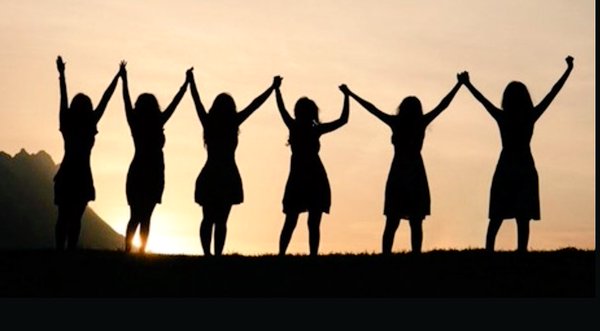Nigeria’s policy framework on gender parity is ten years old this year. The National Gender Policy adopted in 2006 embraces a system-wide approach of promoting gender mainstreaming and women’s empowerment in all public and private policies and programming priorities. The 2016 International Women’s Day provides yet another opportunity to reflect on past failures of the policy’s implementation and prepare for future progress.
In a piece I wrote on the occasion of International Women’s Day (IWD) in 2015, I argued for collective action to “make it happen” for women and girls. In an apparent follow-up to last year, this year’s IWD focuses on gender parity. Clearly if the latter existed, there won’t be any need to make it happen for women.
I begin this piece with a sobering statistic: In 2014, the Global Gender Gap Report, a publication of the World Economic Forum, estimated that it would take until 2095 to achieve global gender parity. One year later, it adjusted this projection by 38 years to 2133. The Global Gender Gap Report measures relative gaps between men and women across four key areas – health, education, economy and politics. Incidentally, these areas complement one another. It is not clear why the 38 years adjustment was necessary but we can hazard a guess – the challenge became stiffer.
With 0.6391 points, Nigeria was ranked 118 of 142 countries surveyed in 2014. It was the 21st of the African states surveyed. The top five were Rwanda (7th), Burundi (17th), South Africa (18th), Mozambique (27th) and Malawi (34th). It is remarkable that the top ten African countries were in Southern and East Africa. It is not clear why this is the case but there appears to be a deliberate policy to prioritize some affirmative action to make it happen for women in those regions. This is certainly the case for Rwanda, where one third of parliamentary seats are constitutionally reserved for women. At 56% today, Rwanda has the highest percentage of women in parliament worldwide.
Beyond performance, let us reflect a bit on the key areas adopted for this survey. It seems to me that access to health and education are critical to participation in the economy and politics, which is why I consider the areas complementary one to another. In my IWD piece for 2015, I argued that we create disparities for men and women as early as when they are born. Just by creating a level playing field for both sexes, we provide an opportunity for them to achieve their fullest potentials. The opposite is also true. Regrettably, there is a huge price to pay for that.
Unequal access to education perpetuates poverty. This is fairly obvious. Girls who do not go to school for whatever reasons, marry early. They have fewer choices in terms of employment and productive economic activities. They are more likely to be dependent on third parties for survival. Unequal access to education also has health implications in that girls often do not get sex education and therefore often have more children than they can cater for. They are less likely to access pre- and postnatal care as well as vaccinations both for themselves and their children. These have consequences in terms of their productive capacities and contributions to society.
Promoting gender parity in Nigeria demands deliberate effort. Take the on-going conflict in the north-east where women and girls are often more adversely impacted. Any initiative designed to address the conflict must therefore provide space for women’s participation. Similarly, post-conflict reconstruction and re-integration efforts ought to benefit from their experience and expectations.
Governments, institutions and individuals have roles to play in actualizing the goal of gender parity. Government must establish and implement clear policies and programmes that encourage inclusion. Harmful traditional practices such as early and forced marriages exclude girls from mainstream development agenda. Government at federal, state and local levels ought to take firm steps to protect girls from these practices. Public enlightenment is critical in preventing these practices. Enforcement action is also required to address violations when they occur. Institutions and individuals ought to deliver on enlightenment and enforcement under clear policy directions.
Interestingly, Nigeria has got a policy framework on which to anchor an agenda on gender parity. The National Gender Policy was adopted in 2006 with a fairly broad goal “to build a just society devoid of discrimination, harness the full potentials of all social groups regardless of sex or circumstance, promote the enjoyment of fundamental human rights and protect the health, social, economic and political well-being of all citizens in order to achieve equitable rapid economic growth; evolve an evidence based planning and governance system where human, social, financial and technological resources are efficiently and effectively deployed for sustainable development.” The policy embraces a system-wide approach of promoting gender mainstreaming and women’s empowerment in all public and private policies and programming priorities and in all organizational and community cultures in Nigeria. Quite an ambitious plan given acknowledged challenges of patriarchy, absence of political will as well as coordination. Unfortunately, these challenges appear to have slowed down the implementation of this laudable policy document.
The 2016 IWD provides another opportunity to reflect on past failures and prepare for future progress. The federal government and all stakeholders need to coalesce around this important document. We need to approach implementation and measurement in a more scientific manner – get baselines; adopt indicators of success; be more methodical in collecting, analysing and using data; and publish results regularly. If we commit to doing the right things as well as doing things right, the 2017 IWD will yield better outputs than the current year. It is possible.
Okeoma Ibe is a lawyer and gender expert based in Nigeria.
THE VIEWS OF THE ABOVE ARTICLE ARE THOSE OF THE AUTHOR AND DO NOT NECESSARILY REFLECT THE VIEWS OF THE PAMBAZUKA NEWS EDITORIAL TEAM

